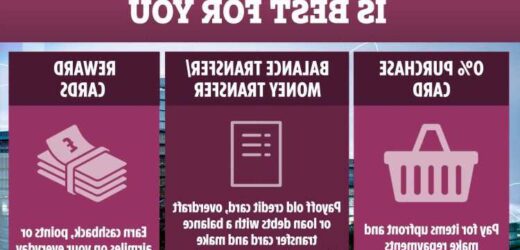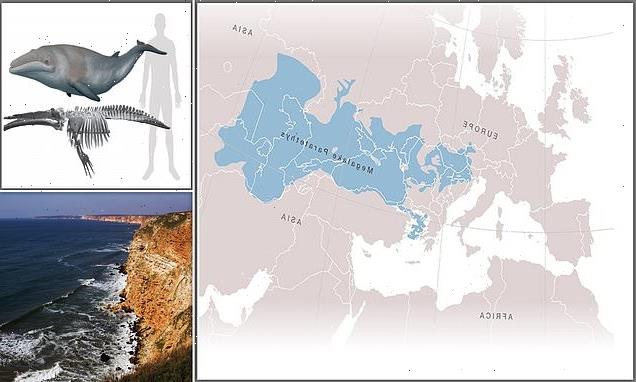INTEREST-free credit cards can be a great way of reducing debts or spreading the cost of expensive items over a long period.
The best interest-free credit cards will let you repay your balance without racking up hefty interest charges.
These cards need to be used responsibly though, otherwise you'll start paying interest on your balance outside of your 0% period.
Here is how interest-free credit cards work.
What is an interest-free credit card?
There are three main types of interest-free credit card.
Each allow users to focus on repaying a credit card balance without any interest for a certain period of time.
- A 0% purchase credit card lets you spend money and make repayments without any interest for a set period. This can be useful when making a large purchase such as a new kitchen as you can spread the cost, as long as you keep up with the repayments.
- A 0% balance transfer credit card lets you clear debts on old credit cards and combine them into a new card where you just make repayments.
- A 0% money transfer card lets you use credit to payoff an overdraft or other debts in your bank account and you then make interest-free repayments each month.
How does an interest-free credit card work?
An interest-free credit card gives you a line of credit.
It can be used on a purchase card to spend a large sum or to clear debts with a balance transfer or money transfer credit card.
The main factors to consider with an interest-free credit card is the deal period and any fees.
The best 0% credit cards will be marketed based on their deal period.
Balance transfer and money transfer cards may also have fees for moving balances.
You can usually apply for an interest-free credit card online or at a bank's branch – but be aware of when you need to start spending or moving money by, as you could lose the offer if you fail to do this within a certain window.
The card won't be interest-free forever and will move onto a pricey APR at the end of the deal.
This is where the banks make their money as they rely on you falling onto the higher interest rates.
You can beat this by checking how long the interest-free period is for and understanding if you can clear your balance before the deal term ends.
How long are credit cards interest-free?
Interest-free periods can vary depending on the type of card and the provider.
You may be able to get 0% rates for up two years or more.
You still need to make at least the minimum monthly repayments though or you will be moved onto a more pricey annual percentage rate (APR), which can be up to 20%.
These deals will also move onto an APR at the end of the interest-free period, so you need to ensure you can clear the debts before then.
Can you transfer overdrafts to interest-free credit cards?
Interest-free credit cards aren't just for big purchases.
You can also clear your overdraft using an interest-free money transfer credit card.
This helps you avoid overdraft fees, get back in credit with your current account provider and make interest-free repayments on the debt.
Make sure you can clear the balance before the end of the interest-free period though, otherwise you will be moved onto the more expensive APR – which could then end up costing more than the overdraft charges.
Why isn't my interest-free period as long as the one advertised?
Credit card providers only have to offer their advertised rate to 51% of applicants.
The actual interest-free period you get will depend on your credit rating.
The best interest-free credit card deals will be offered to those with good or excellent credit scores.
This can make it harder to get the best deals if you have arrears or defaults in your credit report, or if you have been made bankrupt.
Why am I paying interest on a 0% credit card?
Just because you have a 0% interest credit card, there are still some traps you could fall into that incur charges.
There may be charges for cash withdrawals or to transfer money.
The interest-free period may not cover everything, so there may be interest, for example, on a balance transfer card for spending.
Many balance transfer providers offer up to 56 days of interest-free spending if the balance has been paid off the previous month.
But if you only make the minimum payments then you will still have a balance so face being charged interest on the spending element.
Interest can also be charged if you miss payments and once the 0% period comes to an end.
Are all credit cards interest free?
The idea of a credit card is to essentially borrow money from a provider to pay for items upfront or to combine and clear debts.
There should be no interest charges as long as you can clear the balance in full each month.
However, there will be charges if you aren't in an interest-free period but only make the minimum monthly repayments.
Credit card companies may also charge for withdrawals and spending both at home and abroad so it is important to check the terms and conditions.
Does an interest free credit card affect credit ratings?
Applying for an interest-free credit card can affect your credit score so avoid making too many applications at once.
Some comparison websites and providers will let you do a soft search first, which doesn't show up on your credit report, to give you an idea of your chances of being accepted.
This is a better strategy as lots of applications and rejections could lower your credit score and deter financial providers, making it harder to get loans and credit cards in the future.
Can I get a 0% credit card with bad credit?
The best interest-free credit cards are offered to those with a good or excellent credit rating.
This can make it harder to get one if you have a bad credit such as if you have a history of arrears or defaults, county court judgements or have previously been made bankrupt.
If you have a low credit score you may be offered a shorter interest-free period, or it may be worth considering a credit card for those with poorer scores that have short interest-free periods which help you rebuild your rating.
Remember, too many applications can reduce your credit score further so check what you are most likely to be accepted for first.
Source: Read Full Article




